We are on Facebook
How To Use A Mirror Box
Place your affected limb (hand or foot) in the box and the unaffected limb in front of the mirror. Then whilst looking at the reflected image and doing gentle symmetrical exercises it appears that the affected limb is moving normally.
Survivors with limited motor movement need to visualise and attempt to move the affected limb whilst simultaneously moving the unaffected limb in the same way.
They're not terribly expensive (around £30) so maybe worth you trying?
If you want someone to show you what to do then call us on 0203 053 0111 or email support@arni.uk.com and we'll see if there's a trainer near you who can help.
w#ARNIstrokerehabAR#arnistrokecharityn#strokec#strokesurvivorsst#neuroplasticityn#neurorehabit#mirrorboxtherapyirrorboxtherapy
... See MoreSee Less

Worked for me….i kept on saying to to OTs I think this is Woo Hoo, but I’m typing this with both hands. They are cheap so very much worth a go
try this instead set on side an way cheeperhttps://www.amazon.com/DUcare-Portable-Folding-Vanity-Mirror/dp/B01EL2KIA4?th=1
Reclaiming your creative spark is often the most profound way to rebuild your identity after a neurological 'storm'. ARNI friend Matt Grimsdale's journey serves as a powerful testament to this resilience, as he transitioned from a career teaching English across Istanbul and Spain to finding his true 'voice' through the art of songwriting 🎸.
Having already released four albums, Matt was in the midst of his fifth project when his life was abruptly altered in September 2021 by an aneurysm and a subsequent stroke on Saint Matthew's Day. After navigating a period of deep depression where the music felt temporarily lost, he found the courage in early 2025 to return to his craft, finally releasing the raw and deeply personal album 'Really Sick'. The featured track, 'Second by Second', which you can experience at www.youtube.com/watch?v=YMxGn_UXWFE, explores the 'devastating end' of a twenty-year relationship with an emotional honesty that resonates with anyone who has had to rebuild their world 🎤✨.
Matt’s incredible drive to finish what he started perfectly mirrors the ethos of the ARNI Stroke Rehab UK Institute, which encourages survivors to refuse a 'dead end' and instead find innovative ways to drive their own neuroplasticity through meaningful action 🧠🦾.
The ARNI Charity remains committed to the belief that recovery is about more than physical movement; it is about the 'satisfying and enjoyable' reclamation of the passions that make us who we are. For Matt, music provided the ultimate bridge back to his sense of self, proving that the creative spirit can survive even the most challenging medical setbacks.
We're keen to know if others in our ARNI Stroke Rehab & Recovery community have also discovered the 'healing power' of making music or singing during their own rehabilitation journeys? 🎹🌟.
Singing, in particular, is often a 'secret weapon' for those in the UK who have faced the isolating barriers of aphasia, as the brain frequently retains the ability to sing lyrics even when spoken conversation feels temporarily locked away. Have you used singing as a specific strategy to combat aphasia or to process the 'raw emotions' of your recovery? 🦾🌈.
... See MoreSee Less

Exercise: Kneeling
I am a big fan of kneeling practice, and I credit it with a great deal of my ability to deal with foot drop on a daily basis. Kneeling primarily affects your ankle, tops of your feet, knees, hip joints, and the muscles of your legs, buttocks, abdominals, and back. If you have foot-drop, it is going to be very painful at the start. You may end up leaning much more on your good side at first. . Clearly if the pain is sharp, you must adjust until you just feel a good stretch.
Technique: Please bear in mind that the weight shift shown in the diagrams does not present the ideal, but the reality of sitting on top of a foot that does not have integral supportive strength. Adaptations are sometimes necessary. For full instructions on how to do this exercise it's fully explained in in The Successful Stroke Survivor book by Tom Balchin
www.arni.uk.#neuroplasticityi#strokerecoveryo#strokesurvivorsi#strokerehabilitationa#neurorehabilitationa#StrokeRehabr#arnistrokecharitya#strokeexerciser#neurorehabrehab
... See MoreSee Less

I didn't realise how important kneeling was/is. I'm struggling to get full kneeling as I get pain in my hamstrings and back of my knee on affected side but I can do child's pose in yoga - even before my stroke my butt never reached my heels!!! I was never that stretchable!!!😂
This is a great article for anyone wanting to get back into cycling as it takes you through the various types of cycles you can choose from. There's type for everyone
www.arni.uk.#arnistrokecharitya#stroket#strokesurvivorsiv#neuroplasticityic#strokecyclingcl#neurorehabilitationat#arnistrokecharitya#stroket#strokesurvivorsiv#neuroplasticityic#strokecyclingcl#neurorehabilitationat#strokesurvivorscanstrokesurvivorscanrscan
... See MoreSee Less

Cycling after a stroke | vanRaam
www.vanraam.com
It is important to keep active after a stroke. vanRaam's adapted bicycles can ensure that you remain mobile after a stroke.
In the States Ck out Spokes Fighting Strokes. Dan Zimmerman has been promoting recumbent trikes as a stroke therapy for years! I attest to the value of riding a trike!
Exercise: Kneeling
I am a big fan of kneeling practice, and I credit it with a great deal of my ability to deal with foot drop on a daily basis. Kneeling primarily affects your ankle, tops of your feet, knees, hip joints, and the muscles of your legs, buttocks, abdominals, and back. If you have foot-drop, it is going to be very painful at the start. You may end up leaning much more on your good side at first. . Clearly if the pain is sharp, you must adjust until you just feel a good stretch.
Technique: Please bear in mind that the weight shift shown in the diagrams does not present the ideal, but the reality of sitting on top of a foot that does not have integral supportive strength. Adaptations are sometimes necessary. For full instructions on how to do this exercise it's fully explained in in The Successful Stroke Survivor book by Tom Balchin
www.arni.uk.#neuroplasticityi#strokerecoveryo#strokesurvivorsi#strokerehabilitationa#neurorehabilitationa#StrokeRehabr#arnistrokecharitya#strokeexerciser#neurorehabrehab
... See MoreSee Less

Ray Tinsley Hi Ray; well, it does depend on your physio's technical understanding... do please pass on this explanation to him/her and I think he/she may then understand it: maintaining the kneeling position for time provides a high-intensity, sustained passive stretch that targets the anterior myofascial chain, specifically lengthening the tibialis anterior, extensor digitorum longus, and extensor hallucis longus. In the context of drop foot, this position is physiologically beneficial as it counteracts adaptive shortening and contracture of the anterior compartment, which can occur when the foot is chronically positioned in neutral or slight dorsiflexion due to orthotic use or lack of motor control. By placing the talocrural joint in maximal plantarflexion, the weight of the torso applies a consistent load that induces creep and stress relaxation within the collagenous tissues of the anterior tendons and the joint capsule. This process increases the viscoelastic plasticity of the connective tissues, ensuring that the ankle remains mechanically supple. Consequently, when the survivor attempts active dorsiflexion, the weakened neural drive does not have to overcome significant mechanical resistance or antagonist stiffness from shortened anterior structures, thereby maximising the available functional range of motion during the swing phase of gait. Dr Tom
How does it help with foot drop daily? Intrigued….
The life of a teacher who had a stroke at Capital City College in Camden was saved on Friday, 30 January 2026, thanks to the decisive and heroic actions of colleague Chris Egwuma. When the medical emergency struck at the Alexandra Centre, Chris was forced to utilise his first-aid expertise and deploy an on-site defibrillator and commence CPR on his unresponsive colleague, ensuring that vital blood flow was maintained during those first critical minutes.
This display of quick thinking reminds us all that immediate intervention is the most powerful tool we have in the fight against stroke, providing the essential foundation for any future recovery and long-term independence 🚑🧠
Such stories of survival highlight the vital importance of the work undertaken by the ARNI Stroke Rehab UK Institute, which focuses on the intensive, long-term journey that begins after the emergency is over. While the ARNI Charity supports survivors in reclaiming their functional abilities through specialised physical training, for sure, without first responders like Chris, many would never reach the stage where rehabilitation is even possible...
www.arni.uk.com
#ARNIstrokerehab #strokehero #camdennews #lifesavingaction #strokerecovery2026
... See MoreSee Less

Jeanette had a stroke. Her dream was to recover fast and go back to work. She managed to achieve this within 3 month. In this video she talks about how she did it with the help of Senior ARNI Instructor Gabriella Pásztor.
Call us on 0203 053 0111 or email support@arni.uk.com if you want an ARNI Instructor to help you.
www.arni.uk.com
. #stroke #strokesurvivors #neuroplasticity #strokerecoverysuccess #strokesurvivors #strokesurvivorscan #neurorehabilitation #StrokeRehab #strokeexercise
... See MoreSee Less

Weight bearing exercises are a great way to improve communication between the brain and the arm. Since weight bearing exercises simply involve putting weight through the arm, these exercises can be integrated into daily activities or practiced as part of an exercise program.
Need some help to get started? Call us on 0203 053 0111 or email suport@arni.uk.com to arrange for an ARNI trainer to work with you.
www.arni.uk.com #strokerehabilitation #neurorehabilitation #neurorehab #strokeexercise #neuroplasticity #strokerecoveryexercises #StrokeRehab #exerciseafterstroke
... See MoreSee Less

Well, it's not just awful in England; the ambulance handover crisis in Northern Ireland has apparently reached a terrifying peak, with stroke patients forced to wait an average of two hours and 29 minutes last week just for paramedics to arrive.
This systemic collapse saw 11,072 hours of emergency capacity lost in December alone, effectively removing thirty ambulance shifts every single day from our roads. For a stroke survivor, these delays are not merely statistics; they represent a catastrophic loss of the golden hour where brain tissue is most salvageable.
To make matters worse, those trapped on unsuitable trolleys face the additional risks of dehydration and pressure damage, while staggering data reveals that any patient over 80 conveyed to hospital now faces an average stay of fifteen days regardless of their initial condition. 🚑📉
This harrowing reality reinforces why the mission of the ARNI Stroke Rehab UK Institute is more vital in 2026 than ever before, as we must focus on the most robust recovery possible once survivors finally make it through the hospital gates.
While the ARNI Charity works to provide the specialised training needed to overcome the disabilities caused by such delays, it is clear that the current pressure on our Emergency Departments is failing those who need time-critical intervention. For us stroke survivors, this situation highlights the absolute necessity of being proactive with a long-term ARNI (or other) physical management to build the resilience required to navigate a struggling healthcare system! 🧠🦾
www.arni.uk#ARNIstrokerehabR#strokecrisisr#NorthernIrelandHealthe#TimeIsBrainB#strokerecovery2026y2026
... See MoreSee Less

On that, did you know that Northern Ireland's stroke services only fully operate 5 days a week?
There's a joke here that if you're going to have a stroke, at least wait till the weekend is over.
When I was an inpatient, the ward felt like it emptied out on Friday until Monday.
Have you heard of semax peptide
Have you got any Arni staff in NI yet? we are desperate for rehab support!
I had a stroke, had two ambulances called each one said I wasn’t. 4 days later my husband took me to A&E. I spent 2 weeks there and was transferred to a rehab centre and spent 6 weeks there, I have no faith in the NHS any more.
Stroke is getting missed too often and I think just blatantly ignored at times. **IF** they treated it faster they'd reduce hospital admission and long term stays, reducing bed pressure, and .... £££ involved in treating subsequent disability.
Nobody want to admit the NHS is broken when it quite clearly is.
The path to recovery looks different for every stroke survivor. While no therapist can promise a complete recovery, it’s important to set ambitious yet realistic goals.
If you set your goals too low, you may stop before you’ve maximized your chances of recovery. But if your goals are too high, you might become frustrated before you’ve reached your full potential.
Therefore, it’s important to set realistic goals during stroke recovery, and keep setting higher goals as you progress. The more you improve, the more you are able to set new goals for a higher level of healing and recovery.
If you want some help call us on 0203 053 0111 or email support@arni.uk.com We have trainers throughout the country.
www.arni.uk.com
#neuroplasticity #strokerecovery #strokesurvivors #strokesurvivorscan #strokerehabilitation #neurorehabilitation #strokeexercise #neurorehab
... See MoreSee Less

The ARNI Institute is a UK Registered Charity: No. 1116130.
Currently in our 23rd year of voluntary work, we are committed to teaching stroke and other acquired injury survivors to gain better action control. Our Approach to stroke rehabilitation therapy is dynamic, innovative and linked directly to the very latest neurorehabilitation evidence base.
We have over 140 highly qualified independent therapists and trainers around the UK active & available for you at any one time, trained via our Functional Rehabilitation & Exercise Training after Stroke Qualification. Call now to find your therapist or trainer.
ARNI supports the work of the hospital therapists by supporting YOU when your care pathway ends.
NEW! GET YOUR COPY OF NEW BOOK BY TOM BALCHIN LEARN HOW TO RECOVER OPTIMALLY
CLICK HERE
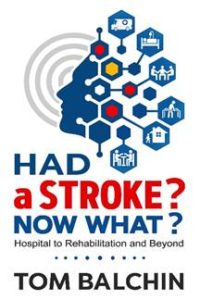 Whether you had your stroke a week or 20 years ago, this seriously practical book reveals everything you need to know about for real-life, evidence-based long-term recovery from limitations caused by stroke, that you can actually understand, use and apply successfully for yourself. With 244 pages of new information and material, it’s stacked with revelations for you based on the neuro-rehabilitation evidence-base.
Whether you had your stroke a week or 20 years ago, this seriously practical book reveals everything you need to know about for real-life, evidence-based long-term recovery from limitations caused by stroke, that you can actually understand, use and apply successfully for yourself. With 244 pages of new information and material, it’s stacked with revelations for you based on the neuro-rehabilitation evidence-base.
NEW! LISTEN TO THIS TESTIMONIAL ABOUT ARNI TRAINING FROM SURVIVOR'S DAUGHTER
CLICK HERE
Click the middle of this short video to listen to the experiences of a stroke survivor currently rehabilitating with the help of an a Senior ARNI Instructor. You can learn for yourself about what she has been doing in this DVD series.
The ARNI Blog
-
Optimal Stroke Recovery Integrates Cognitive Training & Physical Re-training
News February 6, 2026Pioneering research led by a team from the Medical University of South Carolina, including Dr Stephanie Aghamoosa and Dr Michelle Woodbury,...
read More -
Systemic Collapse: Why The Golden Hour Is Disappearing In Northern Ireland
News February 3, 2026The ambulance handover crisis in Northern Ireland has reached a terrifying peak, with recent data revealing that stroke patients were forced...
read More -
Combining Electromagnetic Priming (ENTF) With Intensive Stroke Rehab
News January 30, 2026Preliminary research has identified that electromagnetic network-targeted field (ENTF) therapy, when combined with conventional physical therapy, significantly reduces disability levels in...
read More -
5 Rarest & Most Bizarre Neurological Limitations After Stroke
News January 23, 2026While the majority of stroke survivors battle the well-documented hurdles of hemiparesis or aphasia, a small fraction of individuals find themselves...
read More -
How B-Cell Depletion Causes Post Stroke Fatigue
News January 20, 2026A critical research breakthrough from the Universities of Manchester and Edinburgh, recently published in the journal Brain, Behavior and Immunity, has...
read More -
Cambridge Experts Pioneer Non-Invasive AI Speech Restoration For Aphasia
News January 19, 2026In a significant advance for neuro-rehabilitation and assistive communication, a multidisciplinary team of experts at the University of Cambridge has introduced...
read More -
The Active-Passive Assistive Motion Drop-foot Trainer
News January 3, 2026Navigating life after hemiplegia presents significant physical challenges, particularly regarding lower limb mobility and the management of foot drop. One of...
read More -
Mobile Stroke Units & the 86% Reduction in A&E Transfers
News December 28, 2025In a landmark study published in December 2025, researchers from the University of Dundee have demonstrated that the implementation of Mobile Stroke...
read More -
Elgin Hospital Trial Offers Stroke Hope
News December 20, 2025Incredible news is coming out of Elgin as Dr Gray’s Hospital begins trialling a pioneering genetic testing device that’s good news...
read More -
XCath Pioneers Remote Brain Surgery Tech
News December 15, 2025Incredible strides are being made in neurosurgery as we head towards 2026: XCath are currently developing a groundbreaking robot-assisted approach to...
read More -
Flashing Lights for Future Function: The Latest in Neuro-Tech
News December 12, 2025Imagine a future where stroke survivors can relearn brand-new signals and regain function using advanced technology that talks directly to their...
read More -
The Closure of Yeovil’s Hyper-Acute Unit
News December 12, 2025A significant change is underway in how urgent stroke care will be delivered across Somerset, a development that impacts patients and...
read More -
8 Energy Drinks a Day = 1 Stroke
News December 11, 2025It’s a chilling reminder that even those who appear robustly healthy can be silently walking a tightrope with their cardiovascular system....
read More -
Why Spasticity suffers with Velocity
News December 9, 2025Not a News Item today, but an important Technical Reminder: for our stroke survivors and their professional therapists and ARNI neuro-instructors,...
read More -
Getting Involved with Nature for a Better Stroke Recovery
ARNI STROKE REHAB BLOG December 9, 2025If you’ve had a stroke and like engaging with nature, Izzy and Rocksy, two friends of ARNI Stroke Rehab UK (Occupational...
read More
-
Combining Electromagnetic Priming (ENTF) With Intensive Stroke Rehab
January 30, 2026
-
5 Rarest & Most Bizarre Neurological Limitations After Stroke
January 23, 2026


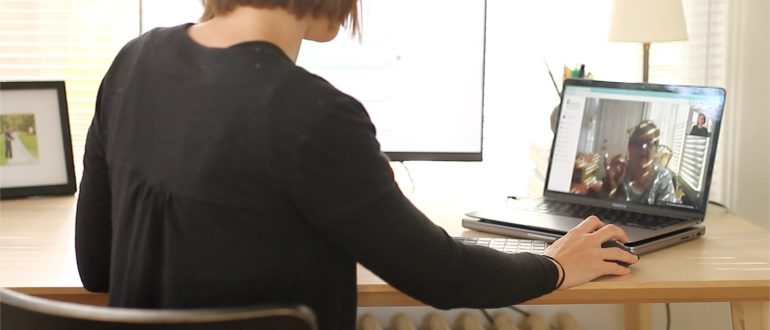
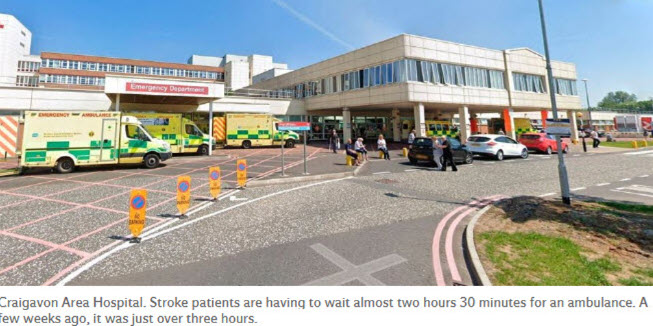
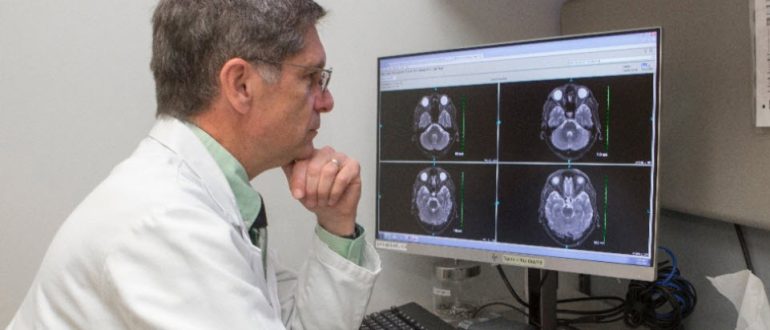

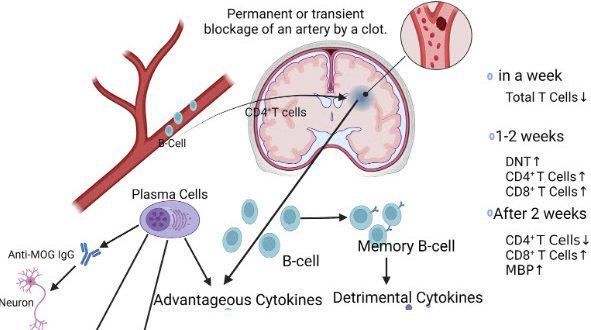
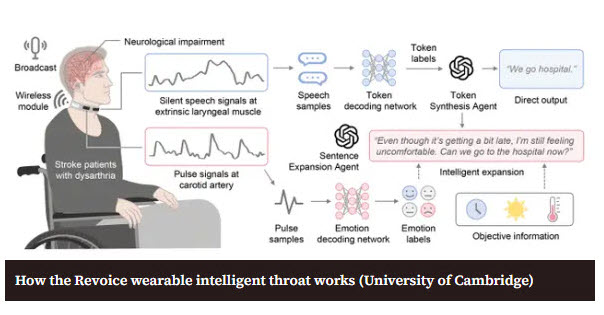
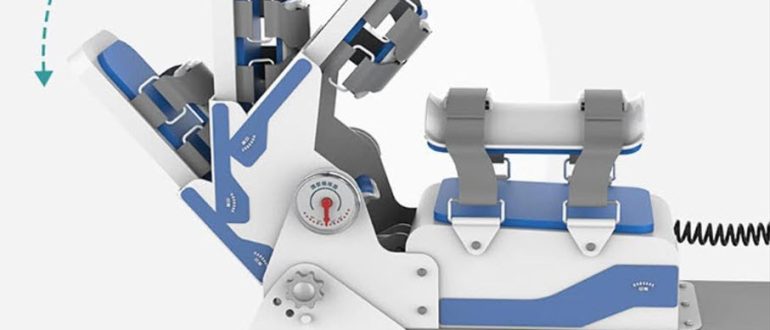
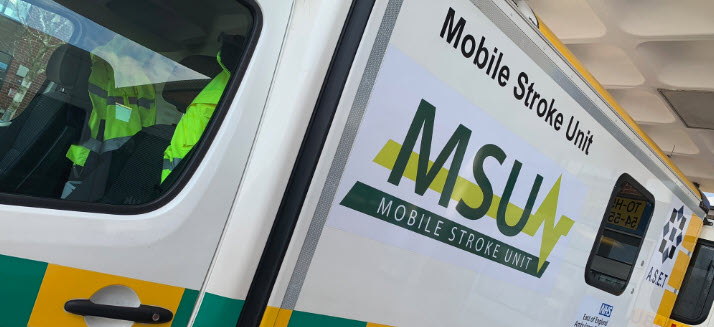


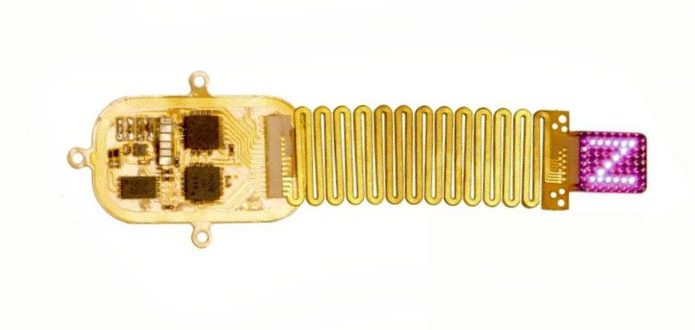
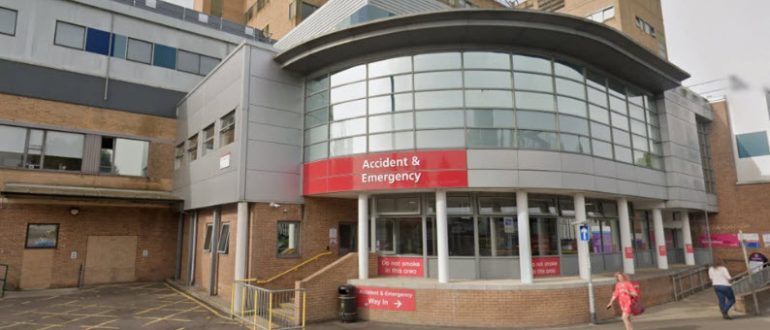
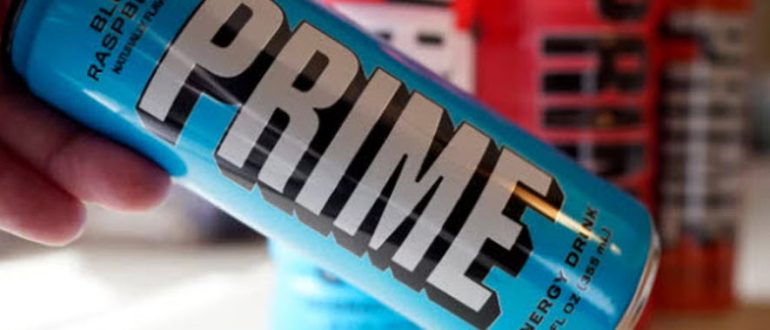
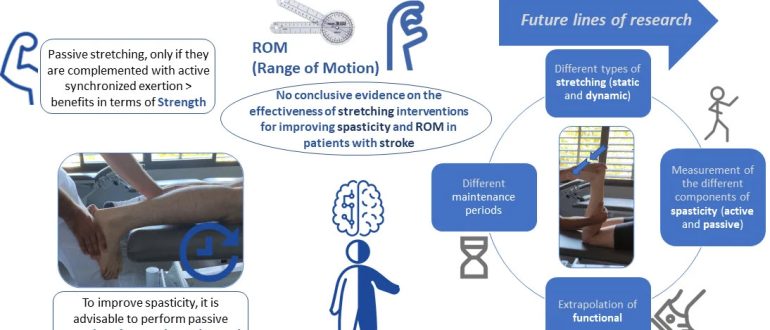
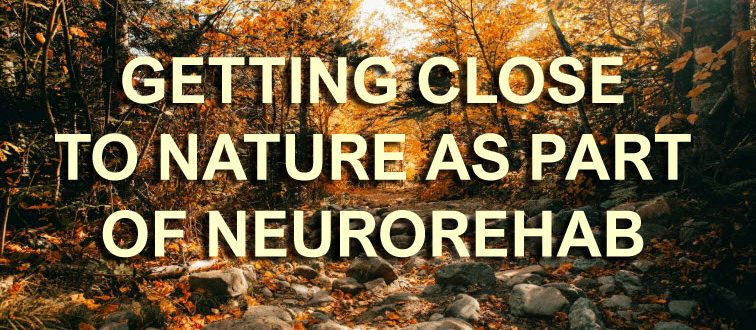




View Comments
Likes:
1
Shares:
1
Comments:
4